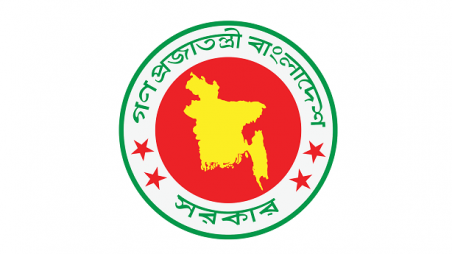Govt moves to streamline projects, cut waste and delays
Officials recommend forming a pool of skilled and experienced officials to serve as project directors

The interim government is taking steps to improve project planning, approval, and implementation, with a focus on completing well-defined projects within a set timeframe.
A high-level, four-and-a-half-hour workshop was held yesterday at the Cabinet Division conference room. It was organised by the Cabinet Division and managed by the Economic Relations Division.
Most participants were advisers, special assistants, senior secretaries, secretaries, and officials from relevant departments. Planning Adviser Wahiduddin Mahmud and Finance Adviser Salehuddin Ahmed led the discussions, during which officials suggested several steps to improve project adoption and execution.
No official statement was issued after the workshop. However, Cabinet Secretary Sheikh Abdur Rashid told reporters that the meeting reviewed all issues and uncertainties related to projects. "We all want project management to be smoother and smarter," he said.
According to sources, there were 1,454 projects in the 2024–25 fiscal year. Of these, 668 were inspected, 55 closely monitored, and 21 assessed for impact.
The workshop examined stages of project approval and implementation where misuse can occur and why officials often fail to object to politically motivated projects. Participants suggested closing loopholes in existing laws and regulations.
An official said corruption and irregularities often occur when preferred individuals are appointed as project directors. To prevent this, the workshop recommended creating a pool of qualified and experienced project directors, who would receive training in financial management, procurement, and project oversight.
Problems identified
The Implementation Monitoring and Evaluation Division (IMED) presented a report highlighting common issues in project implementation. These included inadequate feasibility studies, poor stakeholder consultation, unsound designs, inaccurate logical frameworks, unreasonable cost estimates, ignoring environmental concerns, not following master plans, and over-reliance on consulting firms.
Other challenges included the absence of full-time or experienced project directors, assigning one person to multiple projects, frequent director changes, poor coordination in land acquisition and utility service shifting, irregular external audits, and delays in approvals for foreign-assisted projects.
Additional problems were the improper use of models to determine project duration, inadequate consideration of IMED representatives' opinions, weak monitoring, and delays in submitting project extensions, uploading data to e-PMIS, submitting completion reports, maintaining infrastructure, and appointing dedicated staff.
Way forward
IMED recommended prioritising ecological considerations, preparing construction designs according to master plans, adopting projects based on agency capacity, and including well-defined components. Project documents should clearly state how project duration is determined.
The workshop also suggested submitting Project Completion Reports to IMED within three months, maintaining infrastructure and equipment from revenue-funded projects, and approving and recruiting necessary staff to sustain project benefits.
It further recommended implementing separate projects for land acquisition and utility service shifting.



 Keep updated, follow The Business Standard's Google news channel
Keep updated, follow The Business Standard's Google news channel
















